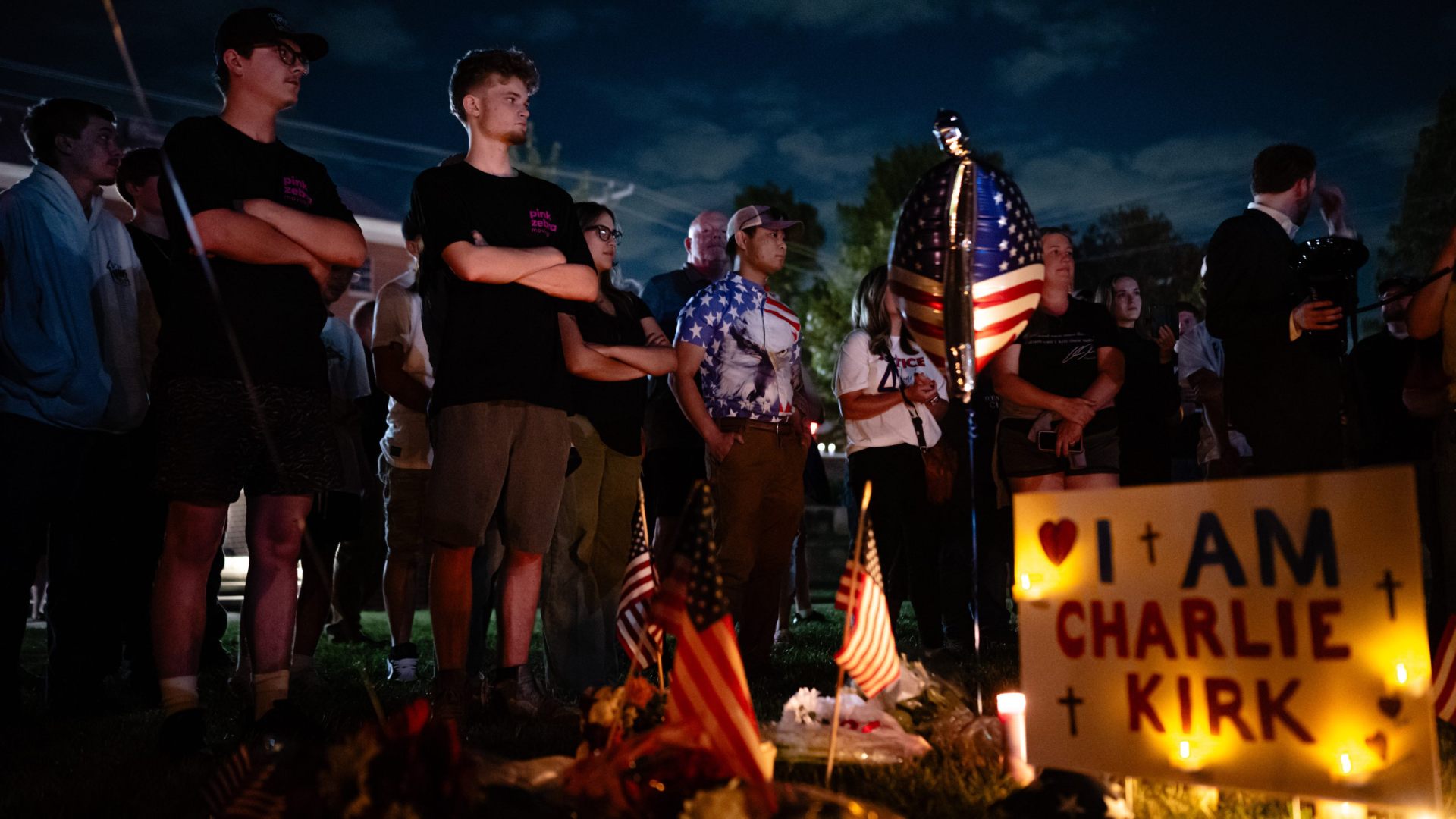In the week following the assassination of Charlie Kirk, many young Christians in my hometown of Louisville, Kentucky were explaining why his death hit them so hard. They pointed me to videos of Kirk interacting with others.
Carter McGill, a 23-year-old recent graduate of the University of Louisville and former vice president of a campus ministry called Across Campus, pointed out a YouTube short in which Kirk interacted with a young woman who identified as a transgender male. In the clip, the student asks Kirk at what age a person should be allowed to start medical intervention for gender transition. Kirk deflects and asks to hear the student’s story and reasons for seeking gender transition.
Kirk then encourages mental health help and “someone that is going to listen to what you’ve gone through, listen to what else is going on.” He says, “My prayer for you … I actually want to see you be comfortable in how you were born. I know that you might not feel that way, but I think that is something that you can achieve. … You don’t have to wage war on your body. You can learn to love your body.”
McGill spoke of dozens of videos in which a person approaches Kirk with a difficult question or even with hostility and his response is almost pastoral. “I can’t think of a time when he was ever hateful to someone he actually interacted with,” McGill said. Sometimes there’s fun, as in McGill’s favorite moment: a young woman coming to the microphone with her baby. She tries to ask a question. The baby interrupts, making noise into the microphone. But rather than express irritation or shrug it off, Kirk, with an ear-to-ear smile, says, “Give it up. That is a gift from the Lord, everyone. That is just beautiful.”
Clayton Smitson, 26, said, “When he talked to people, he talked to them particularly, not to their ideology.” Seth Franco, a 20-year-old student at the University of Louisville, said he admired how Kirk told followers to consider the downstream consequences of progressive ideas and the ministry opportunities they presented to the church.
For example, on the subject of gender transition, Kirk would often speak of it as a matter of social contagion. But rather than simply argue against the ideology itself, he challenged followers to prepare to help. “We need to care for people when they come out of this,” Franco said, believing the “fallout of the movement” was where the church could meet people with the love of Christ and restore them to normal lives.
When orating before crowds, as opposed to answering questions, Kirk was sometimes a flame thrower, with particular criticism reserved for affirmative action, transgender ideology, and DEI initiatives—which he said stood for “Didn’t Earn It.” But some Louisville Christians emphasized how he told opponents they were made in the image of God. His belief in that fact shaped how he treated critics. He often slowed people down, tried to calm their nerves, and even helped them articulate their arguments or critiques.
Although the mainstream press has focused on Kirk’s political role, many in their 20s said his influence went way beyond politics. “He was different from [The Daily Wire’s] Ben Shapiro or Matt Walsh,” said Cassidy Adams, 26, a stay-at-home mom of twin boys. (Disclosure: she’s married to my nephew.) “They’re so abrasive. Kirk showed you could get so much further when you act Christlike and show kindness even while you spoke the truth.”
Adams graduated with a biology degree from an extension campus of Indiana University, where many of her peers tried to “disprove or debunk Christianity and creationism. … The minute you mentioned that you were a Christian, you were treated different.” She appreciated Kirk’s professional demeanor when taking on progressive campus culture and how he tied “science, religion, and politics into one discussion.” She admired his “gift for winning the argument, for sure, but above the arguments he made it plain and simple—Jesus above all.”
Young Christian mourners I spoke with loved Kirk for his bold affirmations of the beauty of marriage. They’ll miss his humor and charm as he won someone from the opposition over to his side. They’ll miss his understanding of when to laugh with people and when to challenge them and those moments when Kirk could disarm one of his challengers by presenting the gospel. In his best moments, he spoke not as a saint lording his status over a sinner but (to borrow a phrase) as one beggar showing another where to find food.
Kirk played that part imperfectly. When his critics say he blurred the lines between political and religious conviction, they’re right. When folks dig up comments he made that are inflammatory or offensive, the critiques that accompany them are often fair. But for those who loved Charlie Kirk, the point wasn’t the provocation, nor was it really even the culture war. It was the appeal of a person of deep conviction, showing up unafraid in a hostile setting, sharing his faith, and treating those around him with dignity and respect.
If those on the right fail to learn from these values, incorporate them, and even canonize them in their own political ethos, we could be headed to a very dark place. The death of Charlie Kirk may well be a tipping point for us culturally. But his way of life may light a way that pulls us back from the brink.














